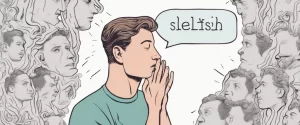
In an era dominated by the constant influx of information and ever-evolving cultural dynamics, the ability to make sound decisions and adapt our perspectives has become vital. As the world grows increasingly complex, understanding how we process information, eliminate biases, and challenge our existing beliefs becomes paramount. In this comparative study, we delve into the intriguing realms presented in Daniel Kahneman’s “Noise” and Adam M. Grant’s “Think Again.”
“Noise” and “Think Again” offer insightful journeys into the intricate workings of human cognition, decision-making processes, and the potential pitfalls that hinder intellectual growth. Both authors, accomplished psychologists in their own right, apply their vast knowledge and expertise to address the challenges individuals face while providing thought-provoking strategies to overcome them.
Daniel Kahneman, a Nobel laureate, renowned psychologist, and author of the acclaimed “Thinking, Fast and Slow,” joins forces with Olivier Sibony and Cass R. Sunstein in “Noise.” In this groundbreaking book, Kahneman and his co-authors explore the intriguing concept of “noise,” which they define as the unwanted variability that can plague workplaces, courtrooms, and other decision-making environments. Through a multidisciplinary approach encompassing economics, law, psychology, and more, the authors investigate how noise affects individuals, organizations, and societies, pushing us to reconsider the reliability and accuracy of the decisions we make.
In contrast, Adam M. Grant, an organizational psychologist, professor at the Wharton School, and New York Times bestselling author, presents “Think Again.” Promoting the virtue of intellectual flexibility, Grant challenges the concept of “cognitive entrenchment” that often stifles growth, causing us to cling stubbornly to our beliefs and inhibiting transformative discourse. Grant argues that adopting a more open-minded and adaptive approach to learning is not only necessary but also beneficial in navigating the complexities of our constantly evolving world.
Despite their divergent focus areas, both “Noise” and “Think Again” converge on the overarching theme of decision-making and its profound impact on individuals, organizations, and society at large. While “Noise” proposes strategies to minimize unwanted variations and biases in our judgments, “Think Again” advocates for embracing the discomfort of changing our minds, challenging our assumptions, and continually questioning even deeply held beliefs.
With this comparative study, we aim to explore the key insights, methodologies, and practical applications offered by Kahneman and Grant in their respective works. By examining the shared threads of their research, we hope to shed light on the interconnectivity between accurate decision-making and intellectual adaptability, providing a comprehensive understanding of the evolving landscape of cognition and personal growth.
In the subsequent sections, we will delve deeper into the core concepts outlined by the authors, examining how “Noise” and “Think Again” contribute to our understanding of decision-making and the means by which we can cultivate intellectual resilience in an ever-changing world. Through a critical analysis of the authors’ arguments, we will uncover the similarities, divergences, and potential synergies between their distinct perspectives.
As we embark on this comparative exploration, we invite readers to join us on this intellectual journey through the works of Daniel Kahneman and Adam M. Grant. By fostering a deeper understanding of “Noise” and “Think Again,” we hope to empower readers with strategies to navigate an uncertain world, become more conscious decision-makers, and foster intellectual growth.
Brief Summary of Two Books
Noise by Daniel Kahneman
“Noise” is a book written by Daniel Kahneman, Olivier Sibony, and Cass R. Sunstein. It explores the topic of noise, which refers to unwanted variability or inconsistency in judgments and decision-making.
In the book, the authors aim to shed light on the impact of noise, focusing on how it occurs in different fields such as law, medicine, hiring practices, and even personal decisions. They examine the consequences of noise, including the substantial costs it incurs both economically and socially.
Kahneman, Sunstein, and Sibony delve into the reasons behind noise, analyzing the cognitive and psychosocial factors that contribute to its occurrence. They also provide insights into reducing noise and propose practical tools and methods to minimize it.
Ultimately, “Noise” serves as an eye-opening exploration of the hidden biases and inconsistencies that can plague human decision-making processes on an individual, organizational, and societal level. The book aims to raise awareness of noise while advocating for more systematic, fair, and accurate decision-making processes.
Think Again by Adam M. Grant
“Think Again” by Adam M. Grant is a thought-provoking book that challenges readers to reevaluate their beliefs, assumptions, and perspectives. Grant argues that in a rapidly changing world, the ability to rethink and unlearn is crucial for personal and professional growth.
The book explores the dangers of intellectual arrogance and the importance of embracing a mindset of intellectual humility. Grant presents compelling research and real-life examples to illustrate how being open-minded and willing to question our own beliefs can lead to better decision-making, improved relationships, and increased creativity.
Grant also delves into various cognitive biases and how they hinder our ability to see the truth or consider alternative viewpoints. He provides practical tips and strategies to overcome these biases and develop a more flexible and adaptable mindset.
Additionally, “Think Again” emphasizes the value of constructive feedback and encourages readers to seek out diverse perspectives. Grant highlights the benefits of engaging in healthy debates and challenging the status quo to foster innovation and breakthroughs.
Overall, the book urges individuals, organizations, and societies to develop a culture that embraces continuous learning, curiosity, and intellectual humility. By regularly questioning and updating our beliefs, we can become more resilient, adaptable, and successful in a rapidly changing world.
Comparison between Two Books

Similarities in decision making
Both “Noise” by Daniel Kahneman and “Think Again” by Adam M. Grant explore decision making processes and offer insights into how individuals can improve their decision making skills. Here are some of the similarities between the two books:
1. Recognition of biases: Both books acknowledge the existence of cognitive biases that often hinder decision making. They emphasize the importance of recognizing these biases and learning how to overcome them when making choices.
2. Reflection on past decisions: Both authors encourage readers to reflect on their past decision making experiences. By examining the outcomes of previous choices, individuals can learn from their mistakes and refine their decision making approach.
3. Importance of seeking alternative perspectives: Both authors emphasize the value of seeking diverse perspectives when making decisions. Kahneman discusses the benefits of involving others in discussions and considering different viewpoints, while Grant encourages readers to challenge their own assumptions and engage in constructive debates with people who hold opposing opinions.
4. Flexibility and adaptability: Both books advocate for a flexible approach to decision making. Both authors argue that being open to new information, changing circumstances, and being willing to adapt one’s decisions can lead to better outcomes.
5. Embracing uncertainty: Both Kahneman and Grant acknowledge the inherent uncertainty in decision making processes. They stress the importance of embracing uncertainty and accepting that there is no perfect decision. Instead, they advocate for making informed choices based on available evidence and probabilistic thinking.
6. The role of intuition: Both authors acknowledge that intuition can play a valuable role in decision making. However, they also caution against relying solely on intuition, emphasizing the need to balance intuition with critical thinking and evidence-based analysis.
Overall, “Noise” and “Think Again” share a common focus on improving decision making skills by recognizing biases, seeking alternative perspectives, embracing uncertainty, and employing a combination of critical analysis and intuition.
Divergences in decision making
Noise by Daniel Kahneman and Think Again by Adam M. Grant both delve into decision-making processes, but they approach the topic from different angles and present divergent perspectives.
In Noise, Daniel Kahneman, along with co-authors Olivier Sibony and Cass R. Sunstein, focuses on the concept of decision noise. They explore how various factors, such as personal biases, inconsistent judgment, and randomness, lead to deviation and inaccuracies in decision-making. The book argues that noise should be recognized and reduced in order to achieve more consistent and fair outcomes. Kahneman presents empirical evidence and studies to highlight the prevalence and impact of noise, ultimately urging readers to improve decision-making processes by minimizing noise’s influence.
On the other hand, Think Again by Adam M. Grant takes a broader view of decision-making, encompassing not only biases but also the concept of cognitive flexibility. Grant argues that it is crucial to develop the ability to reevaluate one’s beliefs and opinions. He delves into the psychology behind confirmation bias and the reluctance to change our minds even when presented with new evidence. The book emphasizes the importance of actively seeking out opposing viewpoints and embracing intellectual humility to make more informed decisions.
The main divergence between these books lies in their primary focus. While Noise places heavy emphasis on identifying and reducing noise, Think Again prioritizes the cultivation of cognitive flexibility and the willingness to reconsider our beliefs. Noise provides a more precise examination of decision-making biases and inconsistencies, offering concrete strategies to address them. In contrast, Think Again takes a more holistic approach, advocating for a broader mindset shift that encourages openness to new ideas and active engagement with differing opinions.
Additionally, the two books also differ in terms of their writing style and tone. Noise, co-authored by Kahneman, a Nobel laureate in economics, is more academically inclined. It offers an in-depth analysis of research findings and uses statistical evidence to support its arguments. Think Again, written by organizational psychologist Adam M. Grant, is more conversational and anecdotal, drawing on real-life examples to illustrate its concepts. Grant incorporates personal stories and engaging narratives to make the principles of cognitive flexibility more relatable to readers.
In conclusion, while both Noise by Daniel Kahneman and Think Again by Adam M. Grant delve into decision-making processes, they explore different aspects of the topic and present divergent viewpoints. Noise focuses on identifying and reducing decision noise, whereas Think Again advocates for cognitive flexibility and the willingness to reconsider beliefs. Understanding these divergences can help readers choose the book that aligns more closely with their interests and desired approach to improving decision-making.

Conclusion
Both books, “Noise” by Daniel Kahneman and “Think Again” by Adam M. Grant, offer valuable insights and are worthy of reading. However, the choice between the two depends on your personal interests and needs.
“Noise” focuses on the concept of noise, which is described as unwanted variability in judgments. The book delves into how noise affects decision-making processes in various fields, such as law, medicine, and finance. If you are interested in understanding and improving decision-making processes, analyzing biases, and reducing unnecessary variations, “Noise” would be a valuable read.
On the other hand, “Think Again” by Adam M. Grant explores the importance of being open-minded, rethinking beliefs, and embracing continuous learning and growth. This book challenges the reader to reconsider their assumptions, question their own knowledge, and develop more effective thinking patterns. If you are interested in personal development, expanding your intellectual agility, and adapting to change, “Think Again” would be a great choice.
Ultimately, both books offer distinct perspectives and valuable insights. Consider your own interests, goals, and the area of knowledge you are most intrigued by to determine which book is more suitable for you to read first.

